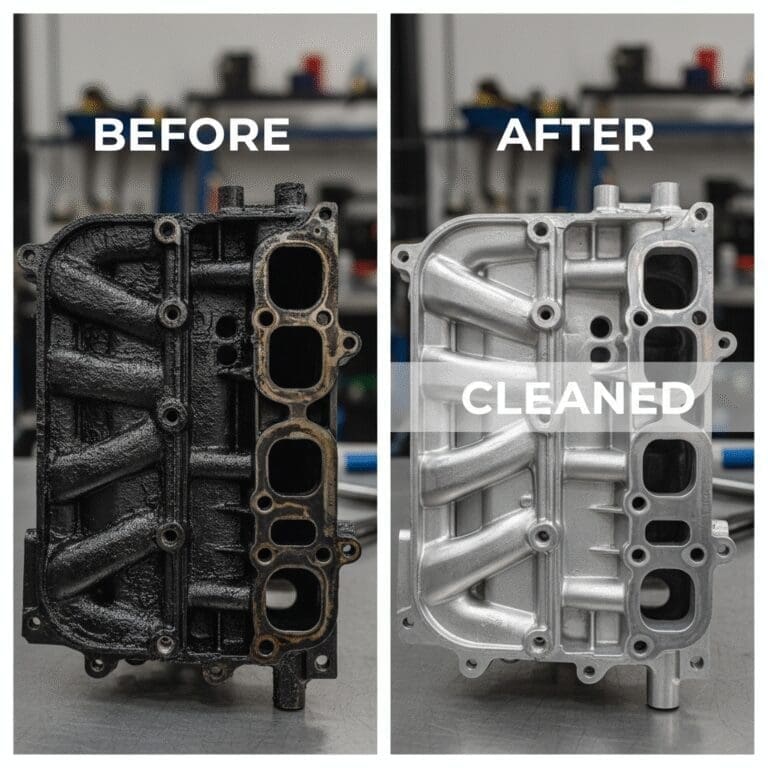What is Chip Tuning and Why Should You Consider It? Chip tuning has emerged as a popular method for maximizing the potential of a vehicle’s engine. This comprehensive guide aims to delve into the intricacies of chip tuning, from its fundamental principles to its practical applications and benefits.
Understanding Chip Tuning
Table of Contents
ToggleAt its core, chip tuning, also known as ECU tuning or remapping, involves the modification of a vehicle’s Engine Control Unit (ECU) software to optimize performance parameters such as fuel delivery, ignition timing, and turbocharger boost pressure. The ECU, a vital component of modern vehicles, governs engine operation by controlling various systems and sensors to ensure optimal performance and efficiency.

Chip tuning harnesses the potential of the ECU by reprogramming its software to achieve desired performance outcomes. By adjusting key parameters, chip tuning can unleash additional horsepower, torque, and fuel efficiency within the engine, resulting in improved acceleration, throttle response, and overall driving dynamics.
The Process of Chip Tuning
Chip tuning typically begins with a diagnostic assessment of the vehicle’s engine and electronic systems. Using specialized equipment and software, skilled technicians analyze data from the ECU to identify areas for optimization and improvement.
Once potential tuning opportunities are identified, the technician proceeds to modify the ECU software accordingly. This involves adjusting fuel delivery, ignition timing, turbocharger boost pressure, and other parameters to achieve the desired performance objectives.
Throughout the tuning process, technicians carefully monitor engine parameters and conduct test drives to evaluate performance and drivability. Fine-tuning adjustments may be made iteratively to ensure optimal results.
Once tuning is complete, the updated software is flashed onto the ECU, replacing the factory settings with customized tuning profiles tailored to the vehicle’s specific requirements. This process may vary depending on the vehicle make and model, as well as the tuning methodology employed by the technician.
Benefits of Chip Tuning
Chip tuning offers a myriad of benefits for vehicle owners seeking to enhance engine performance and drivability.
- Increased Power and Torque: One of the primary advantages of chip tuning is the potential for increased power and torque output. By optimizing fuel delivery, ignition timing, and other parameters, chip tuning can unlock additional horsepower and torque within the engine, resulting in improved acceleration and performance.
- Improved Fuel Efficiency: Contrary to popular belief, chip tuning can also lead to improved fuel efficiency. By optimizing engine parameters for more efficient combustion, chip tuning can reduce fuel consumption and increase mileage, resulting in long-term cost savings for vehicle owners.
- Enhanced Drivability: Chip tuning can also enhance the overall drivability of a vehicle. By improving throttle response, reducing turbo lag, and optimizing power delivery, chip tuning can make driving more enjoyable and responsive, particularly in challenging or demanding conditions.
- Customizable Performance: Perhaps one of the most compelling aspects of chip tuning is its ability to customize performance according to individual preferences. Whether seeking a more aggressive driving experience or prioritizing fuel economy, chip tuning allows vehicle owners to tailor performance characteristics to suit their specific needs and driving style.

- Non-Invasive Modification: Unlike traditional engine modifications such as turbocharger upgrades or engine swaps, chip tuning is a non-invasive modification that does not require physical alterations to the engine or drivetrain. This makes chip tuning a convenient and reversible option for vehicle owners who may wish to restore their vehicle to stock configuration in the future.
Considerations Before Opting for Chip Tuning
While chip tuning offers numerous benefits, there are several considerations that vehicle owners should keep in mind before proceeding with the process.
- Vehicle Compatibility: Not all vehicles are suitable candidates for chip tuning. Certain makes and models may have limitations or compatibility issues that prevent successful tuning. It’s essential to consult with a qualified technician to determine whether chip tuning is appropriate for your vehicle.
- Warranty Implications: Modifying the ECU through chip tuning may void manufacturer warranties, potentially leaving vehicle owners liable for any subsequent repairs or issues. Before proceeding with chip tuning, it’s important to consider the warranty implications and weigh the potential risks against the benefits of tuning.
- Legal Considerations: The legality of chip tuning varies depending on jurisdiction. Some regions have regulations governing vehicle modifications, including ECU tuning, which may restrict or prohibit certain tuning practices. It’s crucial to familiarize yourself with local laws and regulations before scheduling a chip tuning service.
- Quality Assurance: When selecting a chip tuning provider, it’s essential to choose a reputable company with a track record of success and customer satisfaction. Verify the technician’s credentials, experience, and expertise to ensure a professional and reliable tuning service.
Conclusion
In conclusion, chip tuning represents a powerful tool for enhancing engine performance, drivability, and efficiency. By optimizing key parameters within the ECU software, chip tuning can unlock hidden potential within the engine, resulting in increased power, torque, and fuel efficiency. While there are considerations to keep in mind, including vehicle compatibility, warranty implications, and legal considerations, the benefits of chip tuning outweigh the potential drawbacks for many enthusiasts. With its ability to deliver customizable performance enhancements in a non-invasive manner, chip tuning is a compelling option for vehicle owners seeking to unleash the full potential of their engines.
Want instant answers? Try our remap calculator to see the power and torque your car could gain today.
Already tuned or curious about real figures? Run a quick BHP check and prove the numbers.



